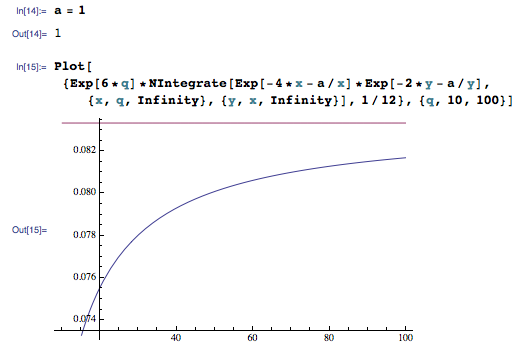I have a more or less stupid problem with an asymptotic value of an integral. consider
$\int_{\infty}^{Q} dx$ $\exp[-4x-a/x] \int_{\infty}^{x} dy$ $\exp[-2y -a/y]$ in the limit $Q \rightarrow \infty.$
I get the following:
$\int_{\infty}^{Q} dx$ $\exp[-4x-a/x] (-1/2)\exp[-2x] \rightarrow (1/2) (1/6) \exp[-6Q]=(1/12) \exp[-6Q]$
however, when I evaluate that integral with Mathematica and compare the asymptotics, it looks like it's falling like $(1/24)\exp[-6Q]$ (there seems to be a factor of 2 difference). where am I making a mistake?
thanks for help. regina

